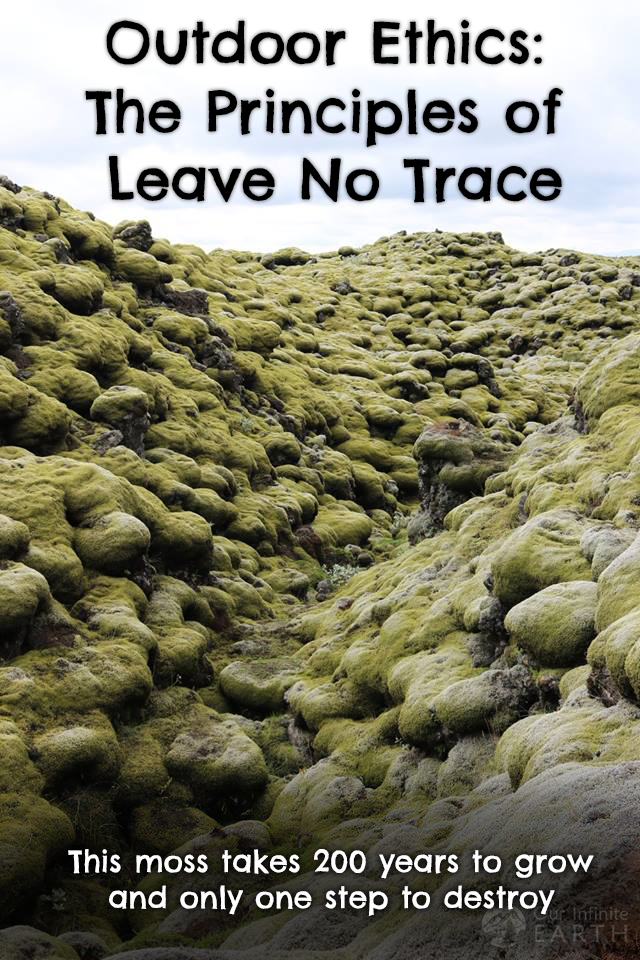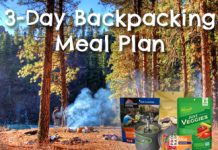

The Best Environmental Practices To Reduce Your Impact
When enjoying and adventuring in the outdoors there is a set of standards and ethics that are best practices for everyone to abide by. These are not rules or regulations and there are no penalties for not following them (other than shame from your fellow campers), but they help to keep our Earth beautiful and allows for others after you to enjoy it as well.
These principles shouldn’t just start when you step out the door! You can take the concepts on these principles and apply them to your everyday life in order to help create a more sustainable world. To learn more about your environmental impact, check out the Leave No Trace Non-Profit which strives to educate people about how they impact nature and how they can minimize this impact.
What Are The Seven Principles Of Leave No Trace?
If you were ever a Boy Scout or Girl Scout (yes I was one), you’ve probably heard these before. These are basically the “10 Commandments” when it comes to exploring the outdoors and to being a respectful adventurer and camper.
Humans are generally pretty destructive and the goal of these principles are to reduce our impact and preserve the Earth as much as possible, especially when exploring the outdoors.
-
Be Prepared and Plan Ahead
- Poor planning often leads high-impact solutions.
- Make sure you have the right gear.
- Prepare and plan for the expected weather conditions.
- Know the regulations (permits, fires, etc.) about where you’re going and what you can expect when you get there.
-
Travel on Durable Surfaces
- Stick to the trail and camp in designated camp sites.
- If neither of those exist, try your best to stick to treading on hard surfaces like rocks or gravel. Don’t set up camp in the middle of a meadow and crush the last known population of an endangered type of grass.
- Don’t cut throw switch backs! This causes soil erosion and damages vegetation, trampling organisms beyond repair.
-
Dispose of Waste Properly
- Don’t litter! Pack it in, pack it out and don’t leave your trash behind.
- Bathrooms – if they exist, use them even if they smell bad! If they don’t, bring a ziplock bag to bring your used TP out with you. When it comes to going #2, use a sanitation trowel to dig a hole 6-8 inches deep and do your business in the hole then cover it up – yup, just like a cat. Make sure you’re a good distance away from water sources to avoid pollution.
- If washing dishes, be careful where you throw your dish water. Plants don’t like soap! Use eco-friendly soap if possible and dump out your water away from any water sources or plants.
-
Leave It As You Found It
- Don’t take things home with you that you think are cool. If everyone did this, eventually there would be nothing left for others to enjoy. This especially goes for flowers and vegetation.
- Minimize site alterations. Don’t break or disturb nature just to set up your camp – this includes putting nails into trees an breaking off branches.
-
Minimize Campfire Impacts
- Make sure fires are allowed.
- If there is a designated fire pit, use it!
- If not, seek alternatives to fires such as propane stoves for heating food or low level lights for ambiance
- If creating a fire, make it a low impact fire
- Place your fire in a durable area that won’t cause much damage.
- Surround your fire pit with rocks to help keep your fire small and contained
- Only use dead wood that’s already on the ground (picky sticks off trees won’t burn well anyway)
- Keep some water nearby just incase things get out of hand
-
Respect Wildlife
- Don’t feed wildlife. Wildlife is WILD for a reason. Feeding animals can cause them to become too comfortable around humans (not all of us are nice), they will also associate humans with food (which for a bear is a very bad scary thing), and will diminish their ability to find food on their own.
- Keep your distance and don’t touch or try to pick up animals no matter how cute they may seem.
-
Be Considerate of Others
- Keep flashlights and headlights pointed toward the ground. If your light had a red or blue mode, this is great for walking around a camp sight as not to cause light pollution
- Keep music at a low level so that it can’t be heard by the next campsite over.
- Don’t walk right through the middle of other people’s camp sites. That’s basically like walking through someone else’s living room just because the place you wanted to get to was on the other side of the house
And that’s it! Pretty easy right? The goal is to be invisible. For no one to know that you were ever there and to leave your campsite as good as or better than when you found it.






